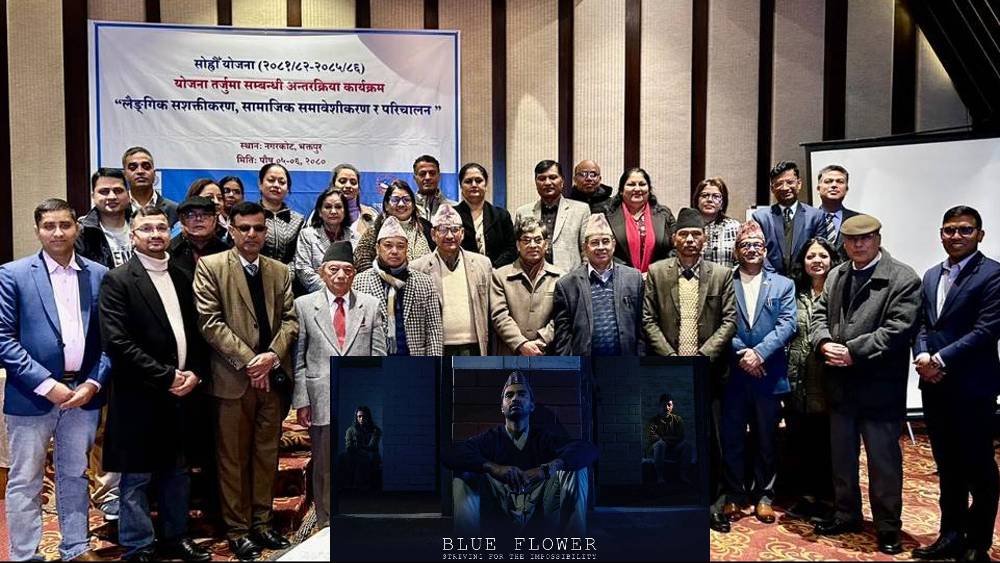
Kathmandu : The Government of Nepal aims to end the forced marriage of sexual and gender minorities (SGM) through its 16th Plan mentioning the point of ending the social structures and values that support forced marriage, and terming it an evil and bad practice.
The 16th Plan aims to make SGM identification and classification objective, and to end the situation where specific groups are less covered due to the failure to institutionalise an integrated management information system with segmented data relating gender equality and social statistics.
During the preparation of the Plan, the National Planning Commission sought inputs from Sunil Babu Pant, Asia’s first openly gay former parliamentarian of Nepal, and executive director of Mayako Pahichan Nepal, representing the SGM community.
Pant’s short film, “Blue Flower” has delivered a message supporting the campaign against, and ending the forced marriage. Pant, a pioneer for the SGMs in Nepal, has been tirelessly fighting for SGM rights.
He founded Blue Diamond Society (BDS), an organisation advocating for SGM rights, in 2001, and as a result of his continuous advocacy, the government recognised SGMs, issuing them citizenship under “other” category following the verdict of the Supreme Court on December 21, 2007. The court ruled responding to a writ petition filed by Pant himself.
According to the court order, on December 31, 2012, a circular was issued to grant citizenship to SGMs under “other” category.
Sixteen years later, the Government of Nepal recognised same-sex marriage on November 29, 2023, making Maya Gurung and Surendra Pandey the first couple in South Asia to legally register same-sex marriage.
Maya is a third gender woman while Surendra is a gay man. Both were masculine at birth.
Following this, Anju Devi Shrestha (Dipti) and Suprita Gurung registered same-sex marriage legally, becoming the first lesbian couple in South Asia. Both of them were born female and have identified as women.
Recently, the Department of National ID and Civil Registration under the Ministry of Home Affairs issued a circular to all 753 local levels to register marriages involving same-sex, third gender and intersex couples.
SGM organisations accused of lack of transparency
Meanwhile, while the government has been advancing the SGM rights, some SGM organisations, including BDS, have opposed to the inclusion of the community under “other” gender category. They have instead advocated for identifying the community as male or female even by opting for gender reassignment or hormone therapy, which is “illegal” as per the constitution of Nepal.
Furthermore, such organisations, including BDS, Federation of Sexual and Gender Minorities-Nepal, and Cruiseaids Nepal, have been accused of violating the principles of conflict of interest, and lacking transparency.
Notably, Monika Shahi, a rights activist for the third gender, was reportedly removed as an employee at BDS when she demanded transparency and democratic procedures in selecting the leadership. Now, BDS has prevented her from participating in any related programmes in retaliation, she said.
sexual and gender minorities NGOs in Nepal accused of conflict of interest, lack of transparency
Copyright © All right reserved to pahichan.com Site By: Sobij.